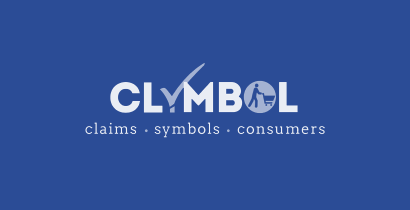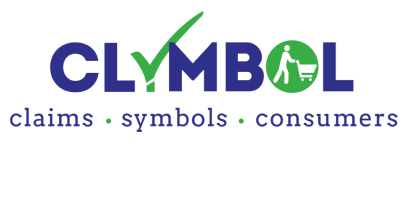What is the role of health-related claims and symbols in consumer behaviour?
Last Updated : 09 December 2013Health claims and health symbols on food labels are intended aids for consumers to identify foods that are healthier options, but little is known about their actual impact on consumer understanding, purchase and consumption. CLYMBOL (“Role of health-related claims and symbols in consumer behaviour”), a European Commission-funded project running from 2012 to 2016, aims to investigate how consumers interpret health information on food and drink products.
Health-related claims and symbols
Health claims can be defined as messages on food packages that state, suggest or imply a relationship between a certain food product - or one of its constituents - and health. The statement “vitamin A contributes to a normal function of the immune system” is an example of a health claim. Health symbols, on the other hand, are awarded to food products which meet certain nutrient requirements and generally constitute a healthier option within a product category. The Choices International logo and the Swedish Keyhole are well known examples.
Many different factors influence consumer acceptance of health-related claims and symbols. Familiarity with the product, the health claim or the functional ingredient used, as well as personal relevance (e.g., motivation to live healthily, a food allergy, other nutritional requirements) appear as the most important determinants.1 However, it is unclear what the actual effect is of health claims and symbols on consumer behaviour regarding food choices. Building on the outcomes of the FP7 project FLABEL (Food Labelling to Advance Better Education for Life), CLYMBOL aims to shed light on how claims and symbols are perceived and understood and how they affect food choice and consumption.
CLYMBOL research
Having started in September 2012, CLYMBOL research is well underway. The first activities are looking at the status of health claims and symbols by mapping their presence in the market and by examining European consumer’s needs and wants for such information. Interviews with stakeholder groups (national food authorities, consumer organisations and industry representatives) have been undertaken in the EU-28 Member States, to research the history of use of health claims and symbols. A preliminary taxonomy has been developed that will help identify and classify health claims and symbols. Additionally, data on food and drink products will be collected in five EU countries (UK, Germany, the Netherlands, Slovenia and Spain) in order to investigate what types of claims and symbols are used and in which context they appear on-pack. The nutritional composition of foods bearing health claims as well as the nutrient profiles behind existing health symbols will be further analysed with the aim of producing a comprehensive overview of the current state of use of health claims and symbols in the EU.
Consumer needs and wants including health motivation and ability to apply given information (claims and symbols) to food choices will be analysed further. Combining findings from the market side and the consumer side, CLYMBOL partners will create a set of methodologies that prove most appropriate in measuring and monitoring the use and effectiveness of claims and symbols on food products.
The core of this project will be a set of empirical consumer studies across EU countries with the aim of producing findings that are generalisable and comparable across different consumer populations. This range of studies will include pan-European surveys, interviews, in-store and laboratory experiments and population data analyses. Among other activities, researchers will observe and analyse subconscious behaviour by tracking consumers’ eye movement and reaction times in-store. This data can then be linked to actual purchases but also to consumer interviews about their food purchases.
Based on research findings, CLYMBOL will develop guidelines on how to apply, effectively analyse, and continuously monitor the use of EFSA-approved health claims and symbols on food products, taking into account country and individual consumer differences. This will be useful for consumer researchers, national authorities and public policy makers but also the food industry to apply health claims and symbols in a way that is beneficial for both consumers and food producers.
The CLYMBOL consortium
Coordinated by the European Food Information Council (EUFIC), the CLYMBOL consortium gathers 14 partners from 9 European countries. The Scientific Advisor is Prof Klaus Grunert from Aarhus University. All partners are renowned experts in various fields such as cognitive consumer psychology, economics, marketing, nutrition and public health. A retailer is also part of the group, ensuring that the research can be carried out in real-life settings.
Further information
- CLYMBOL press release ‘Can health claims and symbols lead to healthier eating patterns?’ Published 26/09/2012
- CLYMBOL project website: www.clymbol.eu
- EUFIC website, EU initiatives section
CLYMBOL - Role of health-related claims and symbols in consumer behaviour - receives research funding from the European Community's Seventh Framework Programme (Contract n°311963).
References
- Wills JM, Storcksdieck genannt Bonsmann S, Kolka M, et al. (2012). European consumers and health claims – attitudes, understanding, and purchasing behaviour. Proceedings of the Nutrition Society 71(2):229-236.


